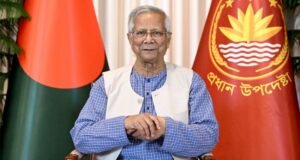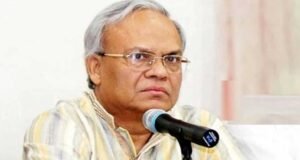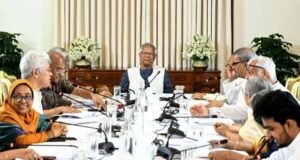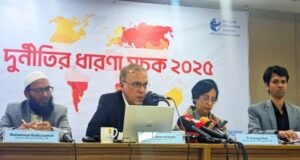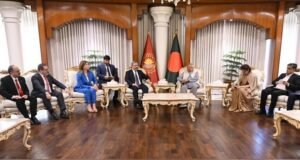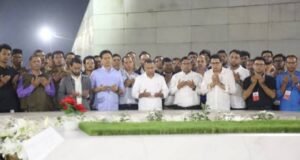
The possibility of Chief Adviser Professor Dr. Muhammad Yunus’s resignation was discussed during a scheduled meeting of the interim government’s Advisory Council held on Thursday at 11:00 AM at the Chief Adviser’s Office in Tejgaon.
Three advisors, two officers of the chief advisor present at the advisory council meeting and student leaders confirmed this information.
According to meeting sources, the council began with a one-hour routine meeting. After the departure of the secretaries, Dr. Yunus held an unscheduled, nearly four-hour-long closed-door discussion with the advisers.
Two advisers revealed that Dr. Yunus expressed his dismay at the beginning of the discussion, stating that political parties and other stakeholders were not providing the promised cooperation. “Under these conditions, it’s becoming impossible to carry out responsibilities,” he said.
He highlighted growing pressure surrounding the upcoming election and expressed concern that the chances of a free and fair election were diminishing. “A controlled election appears imminent — and I am not willing to bear responsibility for that,” Dr. Yunus reportedly stated.
By the afternoon, discussions within the council had sparked widespread speculation across the political spectrum about his potential resignation.
At 4:00 PM, BNP held a press conference, demanding a clear electoral roadmap and warning that continued support for the government would be difficult without it. An hour later, Jamaat-e-Islami held an executive committee meeting and urged the Chief Adviser to convene an all-party dialogue.
As political circles buzzed with the news, Nahid Islam, convenor of the National Citizens’ Party (NCP), and Nasiruddin Patwari, the party’s chief coordinator, visited Dr. Yunus in the evening at Jamuna. They stayed for about an hour.
Advisers Mahfuz Alam and Asif Mahmud Sajib Bhuiyan were also reported to have met Dr. Yunus, though it’s unclear whether their visit coincided with that of the student leaders or occurred separately.
During the extended meeting, Dr. Yunus reportedly conveyed his frustration with the political parties’ lack of trust in the government. He noted that even non-election-related issues were being politicized. “I’ve repeatedly said elections will be held between December and June. I will not remain even a day beyond June. Still, there is a lingering sense of mistrust,” he said.
Participants in the meeting also expressed concern that a controversial election could damage Dr. Yunus’s global image as a Nobel Laureate — a view he appeared to agree with. “That is not a burden I want to carry,” he responded.
Dr. Yunus reminded the council that he had accepted the position following a popular uprising and after repeated appeals from students and political parties. “They promised reforms before elections. But now they are inciting unrest, preventing us from fulfilling the people’s hopes, creating public suffering, and blocking roads over any issue,” he said.
As political uncertainty deepens, the future of the interim government and the timeline for elections remain unclear, with mounting pressure on Dr. Yunus and his administration.
 Weekly Bangla Mirror | Bangla Mirror, Bangladeshi news in UK, bangla mirror news
Weekly Bangla Mirror | Bangla Mirror, Bangladeshi news in UK, bangla mirror news


